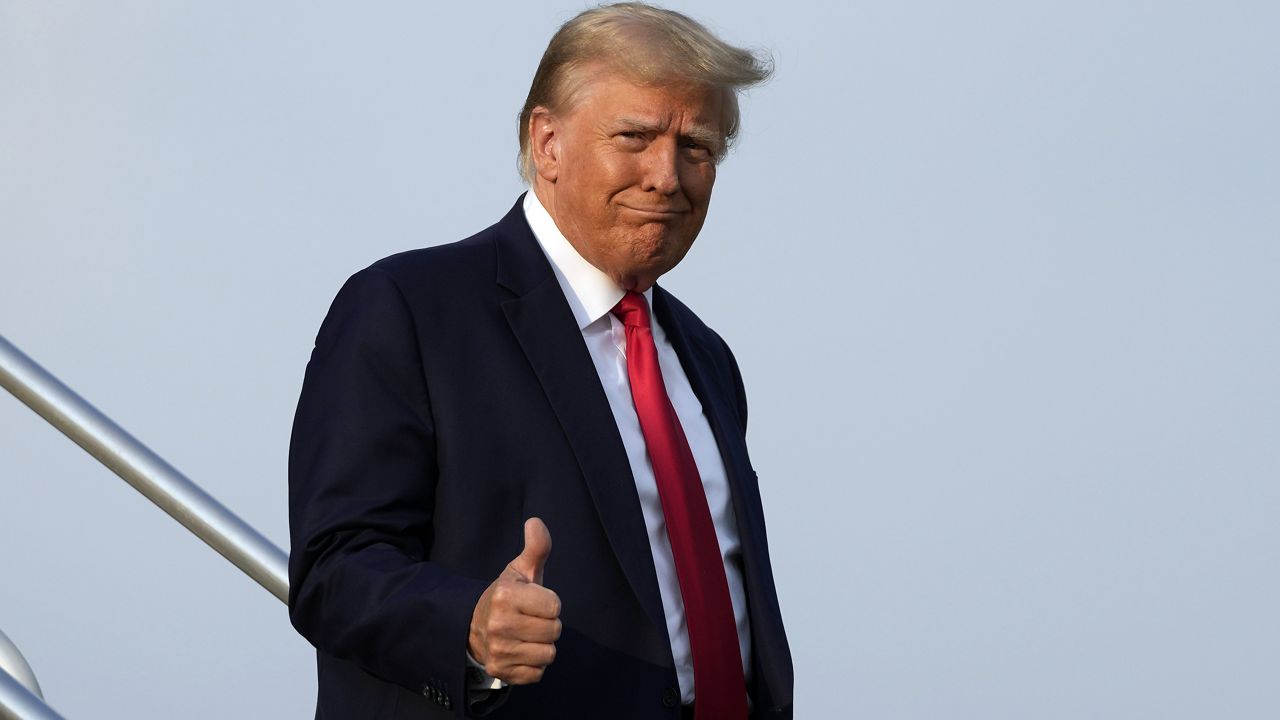An attorney for Donald Trump wrote in a court filing that the former president "may" try to move the Georgia election subversion case to federal court.
"President Trump hereby notifies the Court that he may seek removal of his prosecution to federal court," Trump attorney Steven Sadow wrote in the court filing.
Trump and 18 of his allies were charged last month in a sweeping 41-count indictment accusing them of creating a "criminal enterprise" to overturn the state's 2020 presidential election results.
Among those named in the sweeping 98-page, 41-count indictment were former New York City Mayor Rudy Giuliani, ex-White House Chief of Staff Mark Meadows, former Justice Department official Jeffrey Clark, attorneys Jenna Ellis, Kenneth Chesebro, John Eastman and Sidney Powell, and Cathy Latham, the former Coffee County, Georgia, GOP chair and a “fake elector” who signed a document that Trump had won the state in 2020.
Trump faces 13 felony charges, including violation of the Georgia Racketeer Influenced and Corrupt Organizations (RICO) Act, solicitation of violation of oath by a public officer and numerous conspiracy charges. The RICO charge carries a mandatory minimum of five years in prison.
All of the defendants in the case have entered not guilty pleas. Trump has repeatedly slammed the investigation as politically motivated.
If the motion to move the case succeeds, the case would be overseen by a federal judge and the jury pool would be culled from a larger region rather than from Fulton County, an area that skews more heavily Democratic.
A judge in a separate, unrelated case against Trump -- one involving alleged hush money payments made to an adult film star during the 2016 presidential campaign -- denied a motion to move the case from New York state court to federal court last month, arguing that Trump's lawyers had failed to meet a high legal bar for changing jurisdiction. But in that case, the judge determined that the allegations pertained to Trump's personal life, not presidential duties that would have merited a move to federal court
Trump would not be the only defendant in the case to try and seek removal to federal court. Meadows, Clark and Latham, along with fellow defendants David Shafer, former chairman of the Georgia Republican Party, and Shawn Still, a Georgia state senator, have also attempted to do so.
Lawyers for Meadows argue that his actions that gave rise to the charges in the indictment “all occurred during his tenure and as part of his service as Chief of Staff.” They argue that he did nothing criminal and that the charges against him should be dismissed, and they want U.S. District Judge Steve Jones to move the case to federal court to halt any proceedings against him at the state level.
It was unclear when the judge in Meadows' case planned to make his decision.
The Associated Press contributed to this report.



